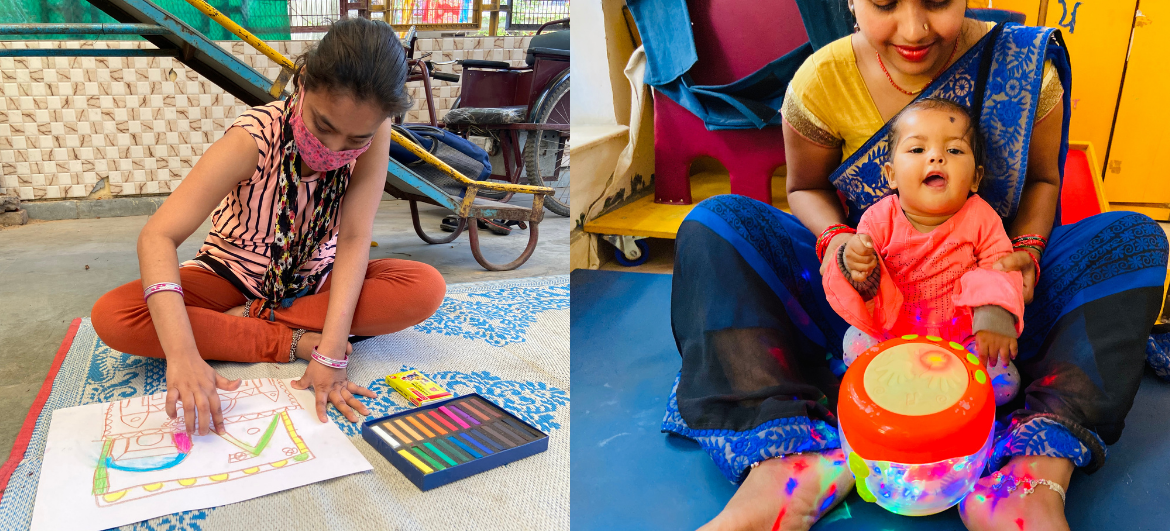Quis autem velum iure reprehe nderit. Lorem ipsum dolor sit nulla or narjusto laoreet onse ctetur adipisci.

Alternative Strategies for the Handicapped (ASTHA)
Supported by: Wipro Cares
About ASTHA
The nation-wide lockdown, in response to the COVID-19 pandemic, had short and long-term socio-economic implications especially for the deprived section of India, causing reverse migration, hunger, starvation, loss of livelihood and a range of other sufferings. Persons and children with disabilities cut across all social groups and are perhaps the most vulnerable ones. A large number of persons and children with disabilities reside in the urban slums and resettlement colonies of Delhi, and belong to migrant families engaged in unskilled work and are employed in the unorganized sectors. This is the vulnerable population often left behind during a humanitarian crisis. It is with these persons and children with disabilities residing in the urban slums and resettlement colonies of Okhla, Tughlakabad, Govindpuri etc. in Delhi that ASTHA has been working with for their rehabilitation for three decades now.
New approaches adopted in response to COVID
The organization decided to respond, to work through the lockdown, and provide immediate help to the distress families through referral calls from other networks and organizations. ASTHA took a step back from response to a more systematic approach. The organization followed a dual approach. It would support the government by activating and facilitating government response’ by informing people of new government efforts. Simultaneously, it would continue to provide for the urgent needs of as many children and persons with disabilities to the best of its capacity. It is important to reach across various vulnerable sections in a crisis like this. Consequently, the organization started providing dry ration to other vulnerable groups.
Lack of data with the concerned authorities on persons and children with disabilities and other vulnerable populations having spatial distribution across the city made the task of identification of distressed families difficult. Reaching out to bodies like the Delhi Hunger Committee and Delhi Commission for Protection of Child Rights enabled the organization to reach people beyond its geographical areas of work. The organization worked in a coordinated manner with different agencies, alliances, stakeholders, and such personnel who have intimate knowledge of the communities where they work to provide instant relief, which proved to be useful in these tough times. In addition, the role of ASTHA’s disability helpline and technology as important channels of communication, disseminating different types of information in such distress cannot be undermined.
It reached out to nearly 2000 families of Children and Persons with Disabilities in Delhi and Bihar. The organization, now, has a list of all these families in need and gradually reaches out to them for their education, rehabilitation, and to reinforce their rights and entitlements.
The organization worked closely with families of Children with Disabilities for their early intervention, education, care, and protection. It facilitated a range of strategies in the form of online teaching, distributing individualized learning kits, and focusing on families as an ecosystem instead of just the individual child.
Plans for Next 1-3 Years
The next few years will focus on consolidating ASTHA’s work, which has expanded considerably in the COVID-19 period. The organization has expanded its work in Delhi and Bihar. In addition, it aims to bring out documents/research studies to highlight the status of Children with Disabilities in context of their access to ECCD and education. The organization also considers its helpline to be a critical part and it will work towards strengthening it.

